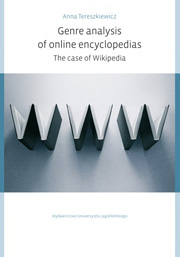4 - Encyclopedias on the web
Published online by Cambridge University Press: 05 September 2014
Summary
Online reference works
As described above, the web has become an effective instrument for the creation of new genres, which involve also modern, electronic reference works. A selection of the encyclopedias available online have evolved from their print counterparts, whereas others function solely on the web.
The first online reference materials appeared on the web around 1992 (WEP 2002). As Buckland (2007) observes, the new environment has not changed the function of reference sources, but has created new tools for accomplishing their purposes. Reference sources still fulfil the role of a place where it is possible to seek and verify data as well as a source indicating the relations between different fields of knowledge (Buckland ibid.: 88). What has changed is their content and form, which is being continuously enhanced due to the ongoing development of technological affordances. It is claimed that the advent of computer technologies has revolutionized the way of creating reference sources, as it is possible to create large corpuses of data and configure different types of reference materials meeting the needs of various groups of users. Progress in the field of information storage, retrieval and distribution has proved indispensable also in editorial and revising processes (Piotrowski 2001).
However, online reference materials, in addition to such a wide range of options, offer also a range of new problems concerning their authorship, reliability and trust worthiness. Moreover, electronic technologies, as Bolter (2001) observes, have contributed to a change in our perception of knowledge.
- Type
- Chapter
- Information
- Genre Analysis of Online EncyclopediasThe Case of Wikipedia, pp. 41 - 64Publisher: Jagiellonian University PressPrint publication year: 2010



